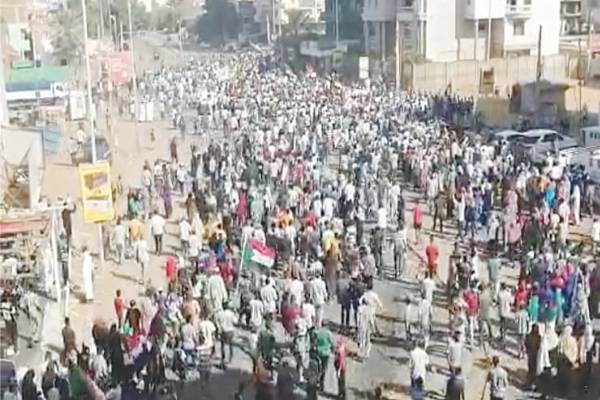Sudanese security forces killed at least ten anti-coup protesters on Wednesday, medics said, the bloodiest day in the country since the military took power on October 25.
The deaths, all of which occurred in Khartoum’s northern districts, brought the total number of people killed in unrest since the military took power to 34, according to a pro-democracy doctors’ union. Hundreds more people have been injured.
The committee noted that the coup forces were “heavily firing live ammunition against peaceful protestors.” “Protests were fiercely repressed,” it added.
Telephone lines were also reportedly cut and internet services were disrupted across the country.
The majority of the victims had gunshot wounds to “the head, neck, or torso,” according to the doctors’ union, but the demonstrators were still marching.
Demonstrations against the coup, which halted a democratic transition following the toppling of longtime dictator Omar Al-Bashir in 2019, also erupted in Port Sudan, according to reports.
On 25 October, Sudan’s Chief of Staff, Abdel Fattah Al-Burhan, declared a state of emergency, ousted the government led by Abdalla Hamdik, and detained the civilian leadership. The move was internationally condemned, with some calling it a “coup”.
Burhan has denied the accusation, and described the measure as a “push to rectify the course of the transition.”





